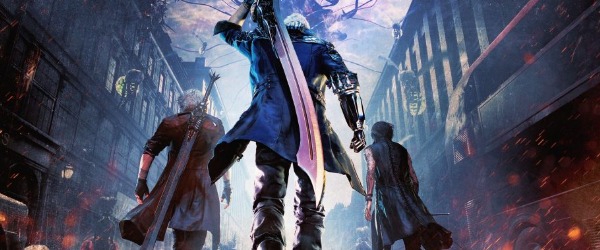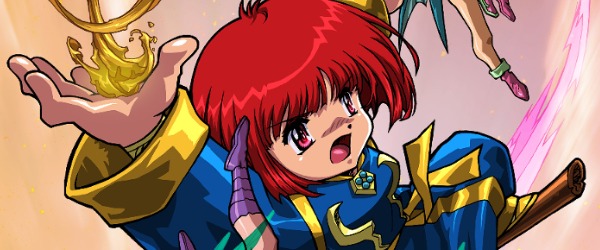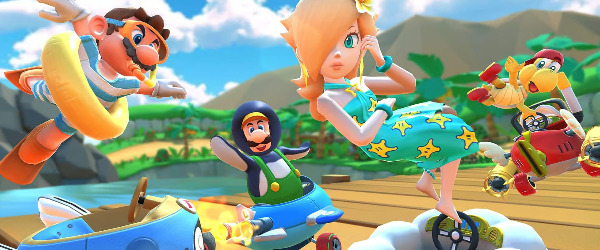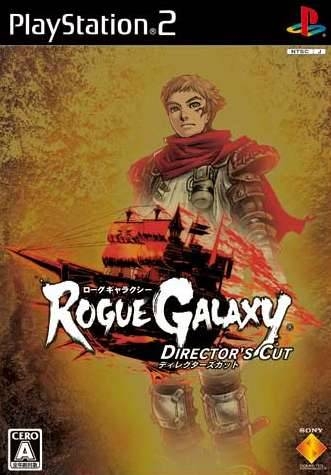
Forgotten Gems #4: Rogue Galaxy - Article
by Taneli Palola , posted on 31 January 2018 / 5,554 ViewsEver since Dragon Quest burst onto the scene all the way back in 1986 the JRPG genre has largely been defined and dominated by a select few developers. The likes of Enix, Squaresoft, and later Square-Enix (after the two merged), have more or less become synonymous with the entire genre thanks to series like the aforementioned Dragon Quest, as well as Final Fantasy and Pokemon. While other developers have found some measure of success with titles like Breath of Fire, Star Ocean, and the Tales series, they've always been more like second tier names in terms of critical and commercial success.
However, in 2000 a new studio began to lay its own claim on the JRPG crown. Level-5 found early success with the PS2 cult classic Dark Cloud and its sequel, but it was the release of the company's third game, 2004's Dragon Quest VIII: Journey of the Cursed King, that truly pushed the developer into the limelight. Since then Level-5 has essentially moved from one success to another with franchises like Professor Layton, Inazuma Eleven, and Ni No Kuni.
Yet, in between making some of the most beloved and memorable games of the last 20 years, Level-5 also made one of the most overlooked PS2 RPGs of all time – Rogue Galaxy. Released soon after Dragon Quest VIII but before the first Professor Layton game, Rogue Galaxy came out at a somewhat awkward period for both the developer and the industry in general, but more on that in a moment.
Rogue Galaxy – Space pirates

In the early 2000s Level-5 had begun to establish itself as one of the best new rising video game development teams in the world, beginning with Dark Cloud and its sequel, and following that up with Dragon Quest VIII to massive success. As such, by 2005 the studio had become one of the premier Japanese developers, despite having just three games under its belt.
The company's next title, which would eventually become Rogue Galaxy, was first hinted at in 2003 on Level-5's website, but the game wasn't officially announced until 2005. From the beginning it was designed to make use of cel-shaded graphics - similar to the Level-5's earlier games - and the studio's founder and president, Akihiro Hino, would be directing the game.
Development began in early 2003 while Dragon Quest VIII was still being worked on, and according to Hino it was the largest project the team had ever undertaken. He also said that Rogue Galaxy was the kind of game he had always wanted to create; it was to be his answer to the Final Fantasy and Dragon Quest series, matching them in terms of scope and scale.
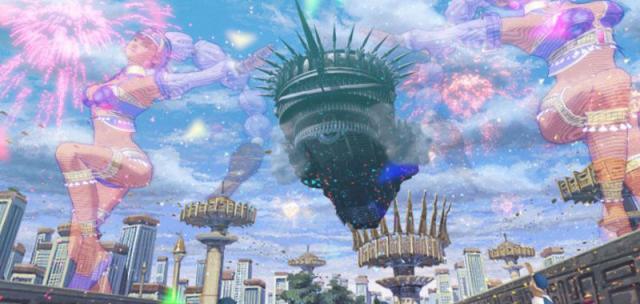
Hino initially wanted the game to feature a huge number of procedurally generated planets, each with its own unique visual style, but this concept was later reworked into a smaller number of planets with multiple locations in each. Another goal for the game, which did end up making it into the final product, was eliminating load times to the absolute minimum that the PS2 hardware would allow.
The soundtrack was composed by Tomohito Nishiura, who had previously created the music for the two Dark Cloud titles and would later go on to compose the score for every single Professor Layton entry. The music in Rogue Galaxy is highly varied, with each new location having its own distinct sound attached to it, helping make every area in the game feel like a unique place, with its own history and culture.
Rogue Galaxy's story follows a young man named Jaster, an orphan living on a desert planet with his adoptive father. After a fight with a powerful monster, during which he defends his hometown, Jaster is mistaken for a bounty hunter called Desert Claw, thanks to a weapon given to him by a stranger. As a result he finds himself invited to join a group of pirates on their quest. Upon learning that their boss is the famous pirate Dorgengoa, Jaster accepts the offer to join them, and in doing so keeps up the charade of being Desert Claw. He is soon embroiled in a conflict threatening the entire galaxy, with different groups seeking to find a legendary planet called Eden and discover its secrets.
Although the basic premise of the story is not very unique or unusual for a JRPG, the game takes the narrative into many surprising places and uses an otherwise familiar set-up to create a genuinely engaging story. Helping the matter is a cast of well written and interesting characters who manage to quite nicely avoid falling into the most common and cliched JRPG tropes. While many of the broad strokes might be familiar to fans of the genre, the smaller details help the game's story build its own identity.
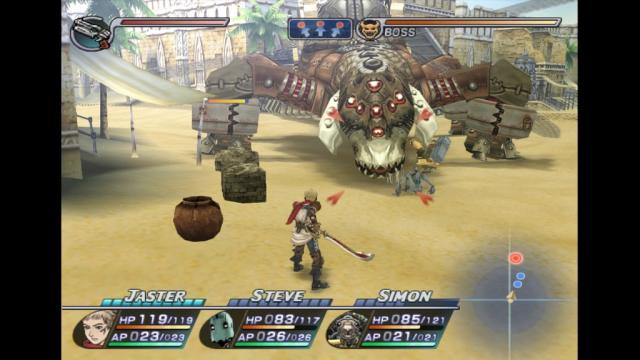
Rogue Galaxy features a real-time hack n' slash style battle system with three active characters. The player only controls one of them at a time, but the controlled character can be changed at will. Battles occur at random, but there are no load times between exploration and combat, allowing for seamless movement into and out of battles, in contrast with most other JRPGs.
The character progression system, called Revelation Flow, shares many similarities with the systems found in Final Fantasy X and XII. Upon leveling up the player can unlock new abilities and improve the characters' attributes by placing specific items into the slots found in the Revelation Flow charts, which are unique to each playable character. It's a fun and flexible system to use, providing a number of different options and ways for the player to develop his or her characters.
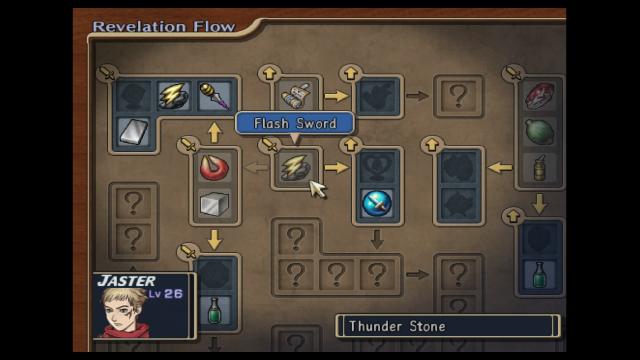
Rogue Galaxy was released on December 8th, 2005, in Japan, and then in 2007 in the West. While the wait for the western release was unusually long, it was justified by the massive improvements that were made during this time, including an entirely new planet with its own storyline, over a hundred new items and weapons, various gameplay tweaks and improvements, changes to some of the game's dungeons, and over 2,000 additional recorded voice lines, among other things.
Upon release it received largely positive reviews, but unfortunately the title's sales failed to meet expectations, ultimately falling well short of 1 million units sold worldwide, making it a clear disappointment following Level-5's earlier successes.
Why Was Rogue Galaxy forgotten?
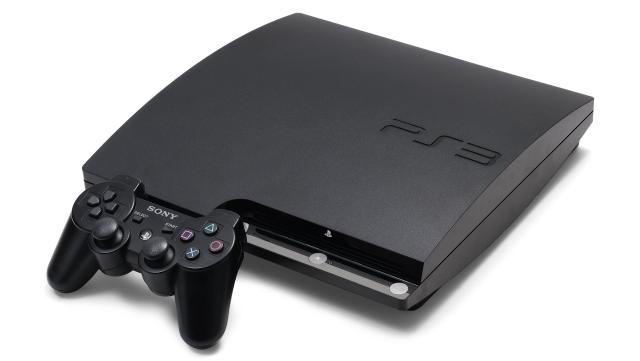
As is almost always the case with these things, there isn't a single defining cause behind Rogue Galaxy's unfortunate fate. Instead, a number of different factors can be seen as having contributed to its relative lack of success, both in comparison to Level-5's other games of the era and to the average success of other JRPGs of similar profile on the PlayStation 2. Games like Star Ocean: Till the End of Time, Xenosaga Episode 1, and Dark Cloud all sold between 1.5 and 2 million copies, while Rogue Galaxy floundered well below that.
Perhaps the most notable obstacle for the game's success was the simple fact that it came out very late in the PS2's lifecycle. Not releasing until January of 2007 in North America, and then over seven months later in Europe, it was simply released far too late in the day to really make a meaningful impact on the market.
This was especially true since every single next generation console had been out for almost a year by the time of the game's western release, or in the case of the Xbox 360 well over a year. As a result much of the console audience had either already moved on to the new systems, or had otherwise simply stopped paying attention to new PS2 releases.
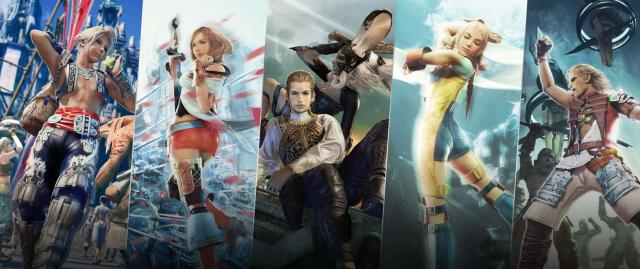
Compounding these problems was the fact that other high profile JRPGs were released in close proximity, the most notable one perhaps being Final Fantasy XII, which launched just a few months after Rogue Galaxy in Japan. At that point in time most people quite possibly simply didn't even realize Rogue Galaxy existed.
The combination of releasing at such a late point in the PS2's lifecycle, coming out after the next console generation was already taking people's attention, and other higher profile JRPGs such as Final Fantasy XII and Kingdom Hearts II releasing at around the same time, was just too much for Rogue Galaxy to overcome as an untested, new IP.
What Makes Rogue Galaxy Still Worth Remembering?
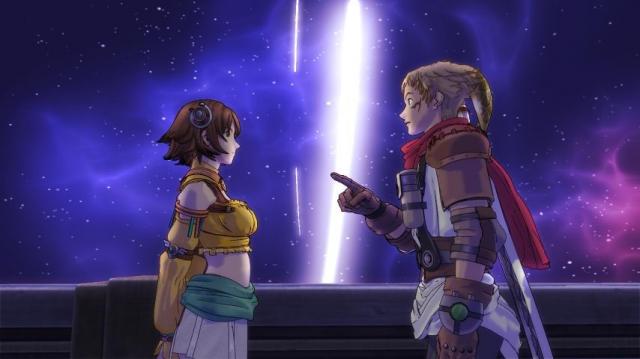
Besides the obviously great visuals that still hold up remarkably well today thanks to the title's use of cel-shaded graphics, nearly every aspect of Rogue Galaxy can be considered on par with the better JRPGs of its era. The setting and visual design are refreshingly different from most other JRPGs, although the space travel and multiple planet aspects do share many similarities with the Star Ocean series.
The real-time battle system is another highlight. It's somewhat reminiscent of other notable series that use real-time battle systems like the Tales and Star Ocean games. However, Rogue Galaxy blends in its own unique elements to help it differentiate itself. The side quests in the game also deserve special mention, as they provide a wide variety of ways to spend time outside of the main storyline, from capturing insects to advancing in the hunter rankings by killing specific enemies.
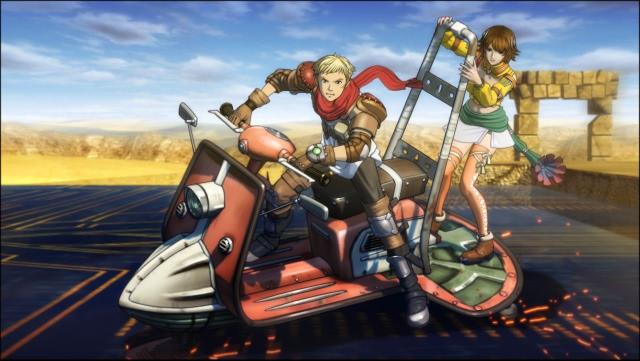
The story and characters are perhaps the overall weakest part of the game, simply because on the whole nothing truly new was done with them that hadn't been done before. It's still a well told story, with likeable characters and some surprising twists thrown in from time to time, but the fans of the genre will still be very familiar with many of the tropes Rogue Galaxy uses with its narrative and character details.
The soundtrack, on the other hand, is highly underrated in my opinion, featuring numerous genuinely excellent tracks covering a wide variety of different musical styles, truly complimenting the game's diverse locations. The music helps to build a unique atmosphere for each one of the many places the player will visit throughout their journey. Nishiura has consistently created high quality music for the entirety his career, but he's never really received the kind of praise he deserves, and his work on Rogue Galaxy is no different in that respect.
Rogue Galaxy is one of the best games made by an excellent studio, but one which was sadly overlooked at the time of its release. While it received something of a second chance at success with the PS Store re-release in late 2015 on the PS4, it has still remained one of Level-5's most notable commercial disappointments.
As such, if you haven't yet had the opportunity to play Rogue Galaxy I highly recommend doing so; it's genuinely excellent and more than deserves to be recognised as such. It may not be quite in the very top tier of PS2 JRPGs, but it is still well worth the time investment.
Sources:
- Weekly Famitsu
- Akihiro Hino Interview








